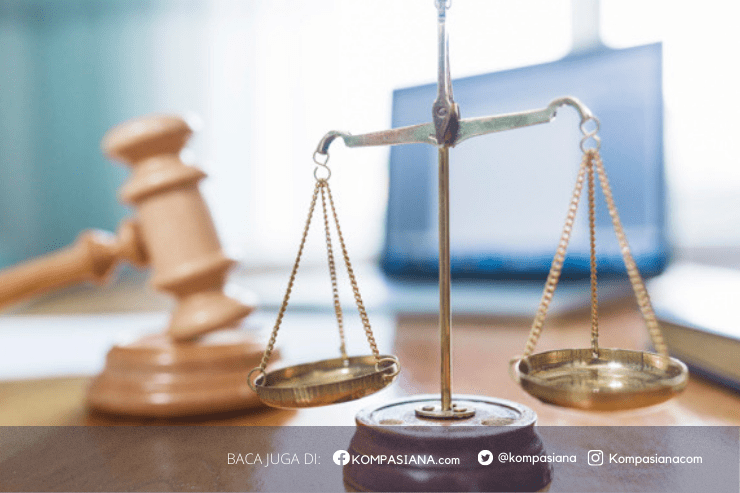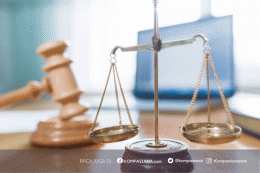Abstract
In today's digital era, where information spreads instantly through social media and mass media, public perceptions of legal and political issues are often shaped by incomplete, unbalanced, or even biased reporting. This is particularly evident in the public discourse surrounding the granting of amnesty and abolition by the President of the Republic of Indonesia---often misunderstood as a correction of judicial decisions. Constitutionally, the President's prerogative lies in the realm of political law, while court rulings remain within the independent judicial sphere. This article takes a deductive and analytical approach to explore the relationship between presidential prerogatives, judicial decisions, and the ethical as well as legal implications for recipients of amnesty or abolition who are after sue judges. Drawing on constitutional law, Pancasila political ethics, and the mystical consciousness of nationhood, it argues that those granted state clemency should show gratitude and respect toward both state institutions involved. Using this privilege as a weapon for personal gain, especially in ways that fuel inter-institutional conflict, constitutes an confrontation with the constitution and a deviation from Pancasila's democratic values. In this context, ensuring factual accuracy in public discourse is vital to prevent misleading narratives and to safeguard harmony among the branches of government.
Keywords: Presidential prerogative; amnesty; abolition; constitution; mystical national consciousness; Pancasila political ethics; abuse of rights; judicial independence; digital media.
Introduction
In the Indonesian constitutional architecture, amnesty and abolition are part of the President's prerogative , explicitly stipulated in Article 14 of the 1945 Constitution of the Republic of Indonesia (UUD NRI 1945). This article affirms that the President has the authority to grant amnesty and abolition, subject to the consideration of the House of Representatives (DPR). This prerogative is not a judicial instrument intended to overturn or correct court decisions, but rather an executive policy of law aimed at achieving state interests, national reconciliation, or restoring socio-political stability (Asshiddiqie, 2010).
From a theoretical perspective, this authority reflects the principle of checks and balances , where the President ( executive ) has certain instruments to balance the impact of court decisions, but not to negate their legal truth. Philosophically, granting amnesty or abolition places the state in the position of the highest pardoner , similar to the concept of raison d'tat which places national interests above the interests of strict criminal enforcement (Habermas, 1996).
However, a developing phenomenon presents an ethical and legal paradox . Rather than closing the legal dispute, there are cases of amnesty or abolition recipients challenging court decisions, even reporting the judges who ruled on their cases, alleging erroneous decisions, lack of independence, or even "misconduct." These incidents have given rise to serious debate about the meaning, limitations, and ethics of the state's use of the pardon right.
A prominent example is the case of Tom Lembong , who returned to the spotlight after reporting the judge who had handed down a verdict in a sugar import corruption case . This legal action was taken after he obtained an amnesty from the President of the Republic of Indonesia, which legally halted the prosecution of the case. This amnesty was legally based on Emergency Law Number 11 of 1954 concerning Amnesty and Abolition, specifically Article 4, which stipulates that an abolition stops criminal prosecution, while an amnesty removes all legal consequences of a crime.
The question that then arises is: Is a countersuit against a judge after granting an amnesty legally justifiable, or does it actually violate the President's prerogative? Doctrinally, the principle of res judicata pro veritate habetur stipulates that a judge's decision is considered correct until overturned by a higher court through a legitimate legal mechanism (Sudikno Mertokusumo, 2009). This means that an abolition or amnesty never changes the legal fact that the decision was made in accordance with the judicial mechanism.
From the perspective of the theory of abuse of rights , the act of suing a judge after receiving a pardon can be seen as an abuse of legal rights for deviant purposes, namely delegitimizing the judicial institution and destroying harmony between the branches of state power (Ruiter, 2001). Ethically, recipients of amnesty or abolition should show gratitude and respect for the executive branch that grants pardon and the judiciary that carries out its judicial function, not use the pardon as a tool for counterattack.
Furthermore, from the principle of separation of powers , the President and judges have distinct yet complementary domains of authority. Granting an abolition does not necessarily imply judicial error, but rather reflects legitimate executive intervention to end a criminal proceeding for the greater good. Suing a judge under these circumstances has the potential to set a bad precedent, one where the President's prerogative is manipulated as a litigation tool.
Therefore, this article positions the phenomenon of amnesty or abolition recipients' lawsuits against judges as a form of legal error and an abuse of the President's prerogative . Using a deductive-analytical approach, this article outlines the normative, ethical, and constitutional foundations of this phenomenon, while also offering solutions to prevent future abuses of state prerogative.







